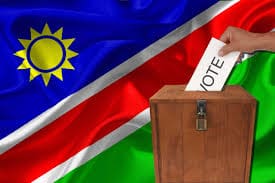Namibia is poised for a pivotal democratic moment as it prepares for presidential and National Assembly elections slated for November 27, seen as a litmus test for the governing SWAPO party following a relatively poor showing during the last polls held in 2019.
The announcement of the poll date was made by Urban and Rural Development Minister Erastus Uutoni during the launch of the Electoral Commission of Namibia (ECN) 2024 electoral calendar in Windhoek on Thursday.
According to Uutoni, voter registration is set to take place between June 3 and August 1, with all eligible Namibians expected to register afresh to participate in the upcoming elections.
The nomination of independent candidates is expected to take place on October 14, while the nomination court for political parties is set for October 16.
Namibians living abroad and seafarers are due to cast their votes on November 13, with the rest of the nation expected to elect the president and National Assembly representatives on November 27.
ECN chairperson Elsie Nghikembua warned that voters’ cards issued since 2015 would no longer be valid during the forthcoming elections, with only newly registered voters allowed to cast their ballots.
In the last general elections held in November 2019, SWAPO lost some electoral ground, managing to get only 65.5 percent of the valid parliamentary votes against a commanding 80 percent five years before.
Its presidential candidate, late former president Hage Geingob, got 56.25 percent of the ballots cast compared to 86.73 percent in the 2014 presidential poll.
The opposition made some inroads into SWAPO’s territory, particularly disgruntled former ruling party member Panduleni Itula who contested as an independent candidate and garnered commendable 29.4 percent.
Another highlight of this year’s Namibian elections is that the country would return to manual ballot papers following misgivings in some circles over the impact of electronic voting machines (EVMs) on the integrity of the electoral process.
Significant debate surrounds the use of EVMs, with critics raising concerns about transparency of the voting process and potential for manipulation.
JN/APA


